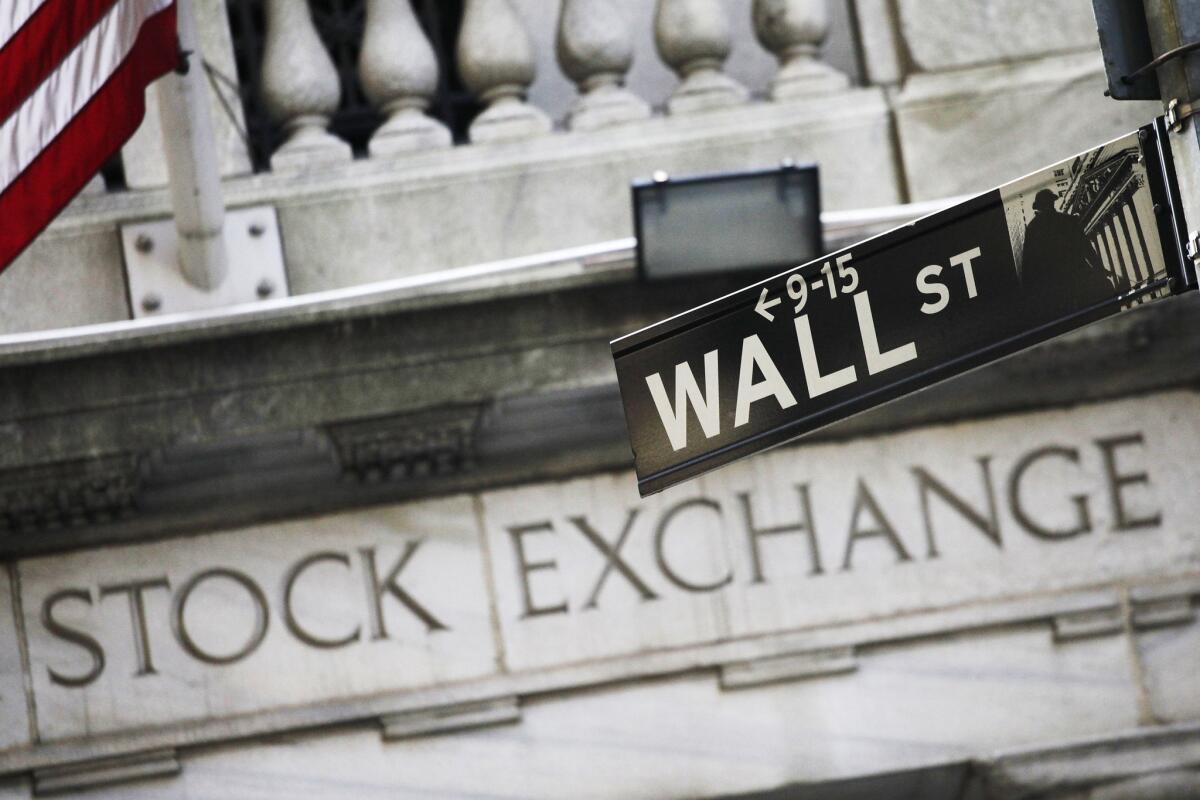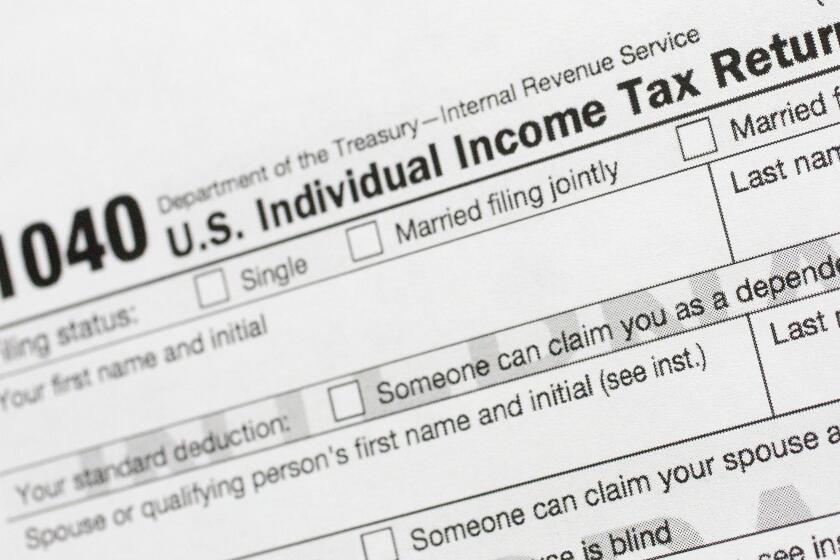Stocks pull back from record highs as banks and retailers fall

Stocks pulled back slightly Monday, retreating from the records the market set last week.
Consumer companies and banks took some of the largest losses. Small-company stocks, which have been outperforming the rest of the market for weeks, gave back some of their recent gains.
The Dow Jones industrial average lost 54.24 points, or 0.3%, to 19,097.90. The Standard & Poor’s 500 index lost 11.63 points, or 0.5%, to 2,201.72 and the Nasdaq composite lost 30.11 points, or 0.6%, to 5,368.81.
Consumer discretionary stocks were among the hardest hit, following the closely watched post-Thanksgiving sales push.
Online retail giant Amazon fell $13.60, or 1.7%, to $766.77 after Citigroup analysts cut their price target on the stock, citing deep discounting by the retailer to compete during the holiday shopping season. Barnes & Noble fell 30 cents, or 2.3%, to $12.50 on reports the bookseller is also doing deep discounting to attract customers.
Monday’s declines followed what has been a remarkable rally in November since the upset victory of Donald Trump in the U.S. presidential election. Investors have made big bets that Trump, with a Republican-led Congress, will push to deregulate energy and banking sectors and cut taxes, which could lead to stronger economic growth.
“The economic and equity market backdrop was already improving before the election. Trump’s victory and the Republican sweep provided a catalyst for investors to ratchet up their optimism,” Bob Doll, chief equity strategist at Nuveen Asset Management, wrote in a note to investors.
The Russell 2000, an index of smaller companies, lost 1.3% on Monday, ending a 15-day winning streak. That was the longest winning streak for the index in 20 years, rising roughly 11.6% this month alone.
Banks also fell more than the rest of the market, with the financial sector of the S&P 500 falling 1.4%. Banks have surged since the election on speculation that the Trump administration will roll back some regulations put into place following the financial crisis.
Investors have also pulled out of the bond market, betting that higher economic growth will also lead to higher inflation, something the U.S. economy has had little of since the financial crisis.
Bond prices rose. The yield on the 10-year Treasury note fell to 2.31% from 2.36%. Bond prices have been falling sharply since the election as investors anticipate that Trump’s policies could lead to higher economic growth and higher inflation. The yield on the 10-year note was 1.83% the day before the election.
The price of benchmark U.S. oil jumped $1.02, or 2.2%, to $47.08 a barrel in New York ahead of a meeting of OPEC, where oil-producing countries may consider a broad cut in production. Brent crude, the international standard, rose $1, or 2%, to $48.24 a barrel in London.
In other energy trading, heating oil rose 4 cents to $1.51 a gallon, wholesale gasoline rose 4 cents to $1.41 a gallon and natural gas rose 15 cents to $3.23 per thousand cubic feet.
The euro edged higher against the dollar to $1.0597 from $1.0592 on Friday. The dollar fell to 112.26 Japanese yen from 113.04 yen.
The price of gold rose $12.40 to $1,190.80 an ounce, silver rose 11 cents to $16.58 an ounce and copper fell 1 cent to $2.657 a pound.
UPDATES:
3:25 p.m.: This article was updated throughout with analysis and the closing prices of various stocks, commodities and currencies.
7:12 a.m.: This article was updated with more details about the markets.
This article was originally published at 7 a.m.
More to Read
Inside the business of entertainment
The Wide Shot brings you news, analysis and insights on everything from streaming wars to production — and what it all means for the future.
You may occasionally receive promotional content from the Los Angeles Times.










